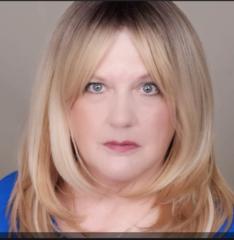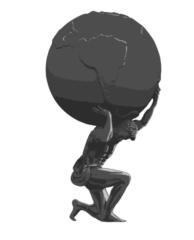Jul 20 • Intro's & General Discussion
Head vs Heart vs Instinct
I am reading quotes this morning, looking for a specific one from Mickey Hargitay, father of Mariska Hargitay (“Law and Order- SVU”), that she mentioned in her documentary about her mother, Jayne Mansfield (sexy bombshell actress of the 1950’s -1967, who was killed at 32 in a car accident.) Mickey had a great quote I should have written down when watching the movie, “My Mom Jayne” ( free on HBO On Demand).
I didn’t find what I sought, but I found one from Mariska’s script on Law snd Order SVU— one that really applies to all of us, I believe, but especially in our industry of online selling.
“trust my instincts. If I don't have that, I shouldn't be here."
Head- Heart - vs Instinct
When you need to make a decision, do you decide from your head, heart or gut instinct / inner feeling?
Which decides first, usually?
What percentaged overall would you assign to each?
Most Sales training teaches people decide from their feelings, or heart, much less than their head.
Is it true? Is it true for you?
Your Buyers
Profile your Buyers. Do they usually buy from their head, heart, or instinct?
Do they buy like you buy?
Mine and My Buyers
I think / feel / instinctively sense my Buyers buy like I do.
My vulnerability may be that I am extremely analytical. I buy usually from my head / intellect/ spreadsheets of pro’s and con’s or best features, “I don’t need it” features, and negatives. Then I check my instincts. Last for me is heart. With one exception: in a crisis, emergency or urgent matter, my training is my foundation- freeing up my heart and instinct take over. ( the type that runs “toward fires”, vs, “fleeing or freezing up.”
My Buyers are first responders, crisis workers or professionals that usually are responsible for making fast, but informed, decisions. However, faced with a crisis, emergency, or urgent matter, such as ‘eldercare’ or ‘how to rebuild after a disaster evacuation and losing most everything of material value,’ then making decisions fast in areas outside their wheelhouse of expertise, then they buy or do from heart or emotion, then instinct. And many, ironically, just freeze up.
If my Buyers have time to plan and strategize, and are well rested / not feeling overwhelmed, then they revert back to analytical decisionmaking.
For me, with my Buyers, I have to sell into their different types of buying.
For that reason, I like the ASK system - Ask up front questions and the answers send a buyer into a Funnel that identifies where they are in their buying cycle for need (planning, mitigating ( desire for controlling impact of a future problem), managing, exiting, recovering.
Next, I remind myself everyone is either a Visual, Auditory or Kinesthetic ( hands on) buyer. Most Sellers now instinctively do this. Video is both visual and auditory, Podcast is auditory..Workshops and Challenges use all three: Exercises and group work reach Kinesthetic buyers who need to directly experience a result for themselves to inform them of a buying decision.
Should you Care?
It depends, I think. Heart buyers will often respond to and have a desire to buy fast - count down timer, etc., if they are interested. But they might also want a refund faster if something doesn’t work for them fast. They may also want more attention and support.
“Head/ think- it- through- first buyers” can get annoyed with a count down timer / high pressure:/ make a decision now. They can be inclined to ignore your offer, contsct support for more info, keep the offer alive but stall on a decision until they hsd time to think it through.
I think, from my experience with myself and other similar buyers, ask “How much time do you think you need to reach a decision?” (… if you have a time sensitive offer— especially on high ticket offers.) Work with this type of Buyer. Chances are they / we complain less after we buy. And usually are more self reliant, self starters, needing less handholding. We may be more coachable, and less attached to a personality. We may feel more professionally valued. ( that is where emotions come into play…)
Instinct Buyers can make decisions fast, too. And may be a mix of self reliant or clingy depending on situation. With my eldercare care giver family members, usually these otherwise professional workers need a lot of support because they are outside their area of expertise, usually. But my disaster evacuees, once well rested, professional workers can be very self reliant. ( sports analogy: give them the ball and they will run with it; they know how to run. Systems and methods already make sense.)
Stereotyping
People can often be a blend of visual- auditory- kinesthetic learners. It might be it also changes depending on topic. I am mostly auditory, second visual and lastly kinesthetic. But for software? I am almost 100% kinesthetic. And I frustrate myself often because I am upset with myself that I can’t just follow a video, and listen. I want to sit with someone and copy their moves. A video frustrates me.
How Do You Learn?
How Do your Buyers Learn?
3
4 comments

skool.com/prime-mover
Discover the secrets of how to Sell Online and step into your calling as a Prime Mover with Russell Brunson!
Powered by





